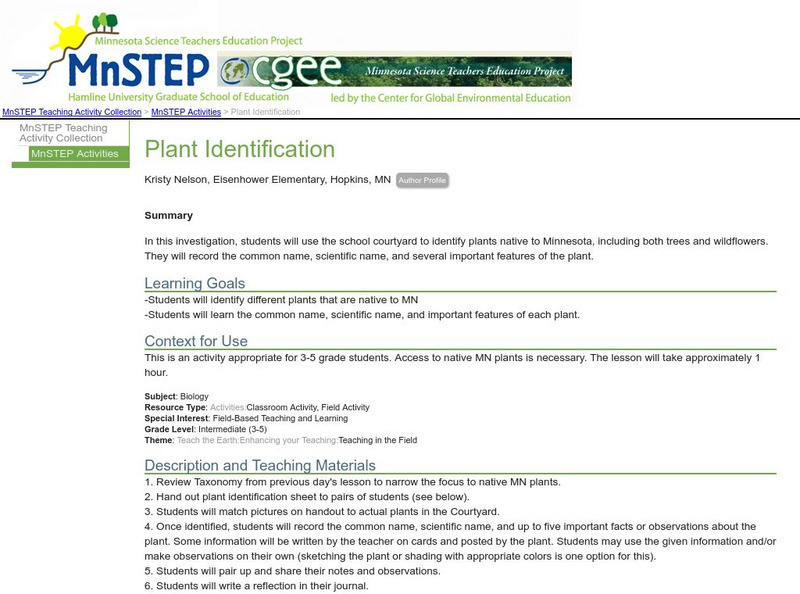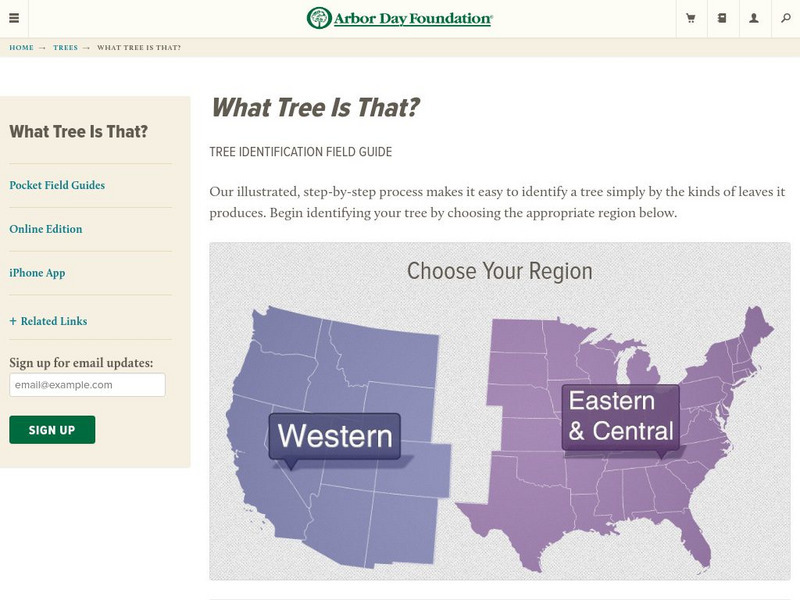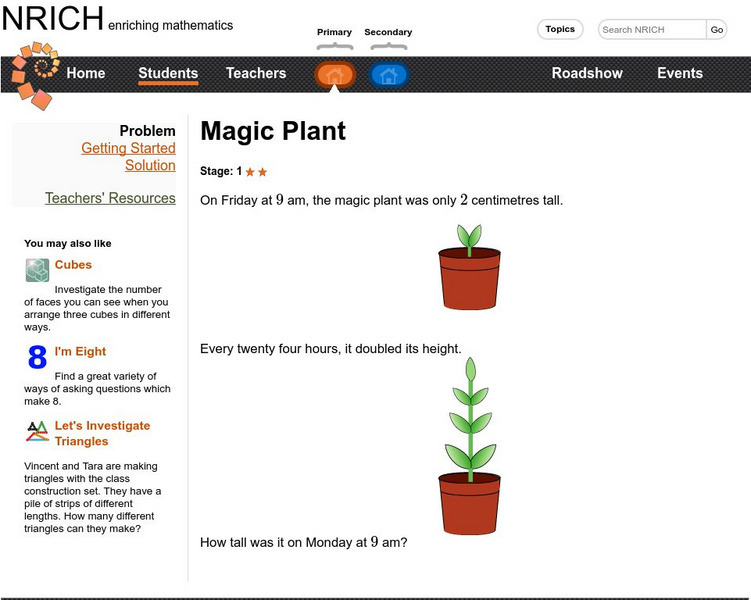Other
Alice Ferguson Foundation: Bridging the Watershed: Plant Identification
Use this interactive guide to identify plants based on their leaves. For each step, you are given two choices, and you continue down the branches until you discover a plant's name.
Science Education Resource Center at Carleton College
Serc: Plant Identification
For this investigation, learners will use the school courtyard to identify different plants native to Minnesota, including both trees and wildflowers. They will record the common name, scientific name, and several important features of...
Science Education Resource Center at Carleton College
Serc: Leaf Rubbing and Plant Pressing
Students will study native plants by creating a herbarium used in plant identification. They will also complete some leaf rubbing to put in their journals. This activity is part of a series of labs about plants.
Science Education Resource Center at Carleton College
Serc: Tree Leaf Identification and Leaf Display Activity
In this Biology field activity, students collect tree leaves and seeds to make an identified collection after drying in a plant press, a phone book, or in magazines.
Alabama Learning Exchange
Alex: Touch and Feel: Plant Adaptations
This introductory lesson centers on getting hands-on before getting drug into the vocabulary and nomenclature. In cooperative learning groups young scholars will describe leaves in simple terms. Then, students will use various resources...
ClassFlow
Class Flow: Plants: Identifing the Plant Parts
[Free Registration/Login Required] In this flipchart, First grade students will learn about roots, stems, flowers, and seeds. They will also have the chance to view a streamline video about plant parts.
Other
National Arbor Day: Educational Resources
This collection of resources provides Arbor Day classroom activities for students in areas ranging from science to the arts. Students can learn plant identification, write poems or plays and quiz each other on tree facts.
Other
The National Arbor Day Foundation: What Tree Is That?
Imagine a world without trees. Students can click on a barren field to see the transformation of the bare dirt by plants and trees. The authors include an online reference guide that lists the benefits of trees and an excellent...
Science and Mathematics Initiative for Learning Enhancement (SMILE)
Smile: Teeth Identification in Omnivores, Herbivores and Carniv
In this lesson plan, students make puppets out of paper bags and use corn to give their animal (dinosaur, raccoon, etc.) the correct type of teeth based on the animal's diet.
University of Cambridge
University of Cambridge: Nrich: Magic Plant
On this one page website sharpen your logic and pattern recognition skills while working on this challenge. The solution is available to double check your solution.
University of Nebraska
University of Nebraska State Museum: Pollen Detective: About Pollen
Twelve different species of plant pollen are highlighted in this engaging resource. For each plant you can view pollen as seen under two different kinds of microscopes. Reproductive cycles and physical traits used for identification are...
Cold Spring Harbor Laboratory
Cold Spring Harbor Laboratory: Greenomes
A series of experiments with an arabidopsis plant appropriate for AP or IB Biology. Experimentation includes PCR, identification of genetic modification, as well as complete write-ups and instructor information for pre-lab preparation.
Science Education Resource Center at Carleton College
Serc: Classify the Trees/leaves
Students go outside to look for trees and gather leaves. Working cooperatively they will sort and try to classify the trees by the characteristics of their leaves.












